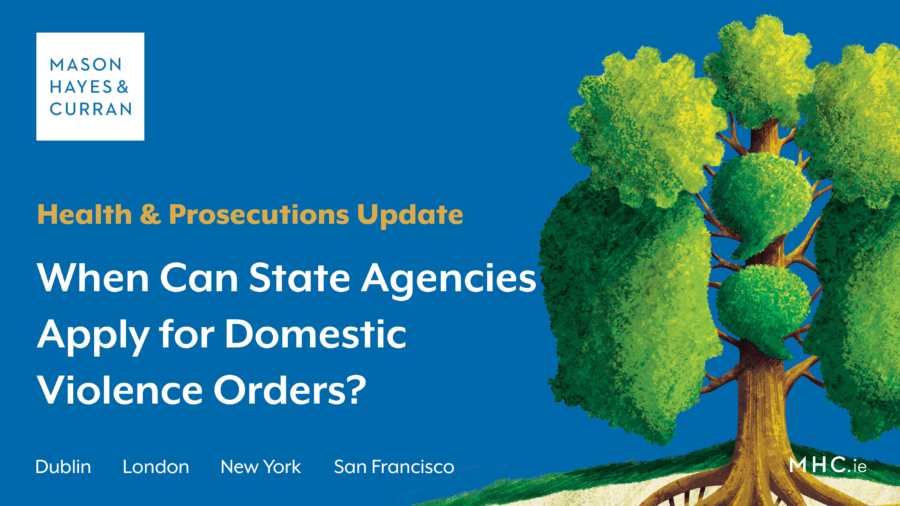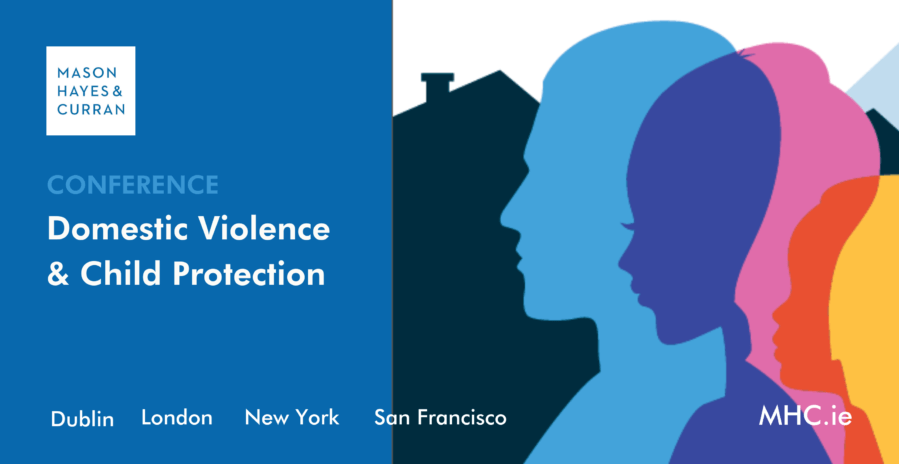
Irish law has long provided for access to the courts for victims of domestic violence. Even though this is the case, many victims may be deterred for a variety of reasons from seeking orders such as barring orders and safety orders. In recent years, new legislation has allowed for domestic violence orders to be sought by state agencies in certain circumstances. We review those circumstances.
Domestic Violence Act 2018
The 2018 Domestic Violence Act (DVA) consolidated existing domestic violence provisions into one comprehensive act. Orders that can be sought under the DVA include:
- Safety order
- Barring order
- Emergency barring order
Section 11 DVA
Section 11 of the DVA empowers the Child and Family Agency (CFA) to bring domestic violence applications on behalf of an ‘aggrieved person’ (AP) - this is the person that the CFA believes to be the victim of domestic abuse. The CFA can only apply on behalf of an AP where the AP would be eligible to apply in their own right. In other words, this provision does not create additional categories of relationships subject to DVA orders.
To apply under Section 11, the CFA must establish the following:
- That they are aware of an incident(/s) that puts in doubt the safety or welfare of the AP
- That they have reasonable cause to believe that the AP has been subject to molestation, violence, threatened violence or otherwise put in fear of their safety or welfare
- That given their circumstances, the AP is deterred or prevented from seeking an order, and
- That, having ascertained the wishes of the AP as far as is reasonably practicable, the CFA considers it appropriate to seek the order
Although the legislation does not require the express consent of the AP in these applications, the District Court is obliged to have regard to the wishes of the AP in considering whether to grant the order.
Health Service Executive
An agreement signed between the CFA and the Health Service Executive (HSE) provides that the HSE may pursue domestic violence orders under Section 11 where they are necessary for the protection of vulnerable adults against domestic, sexual or gender based violence. The CFA and HSE are the only state agencies that can seek such orders on behalf of an individual.
Conclusion
Anecdotal evidence would suggest that Section 11 DVA is not frequently invoked at present. The relevant sections of the legislation are drafted in very technical language, and not all domestic violence situations are captured in the DVA. Nevertheless, this relatively recent legislation is a valuable additional measure to assist state agencies in protecting vulnerable children and adults against domestic violence.
For further guidance on this area, please contact a member of our Health & Prosecutions team.
The content of this article is provided for information purposes only and does not constitute legal or other advice.
Domestic Violence & Child Protection Conference
Friday 28th October 2022 | 11:00 AM - 4:00 PM

The School of Social Work and Social Policy Trinity College and Mason Hayes & Curran LLP previously launched a training programme on the topic of Domestic Violence and Child Protection.
In response to demand for in person training and the lifting of COVID-19 restrictions, we are delighted to announce our first in person event on Friday 28 October 2022. This may be of interest to those are working in the practice area, but do not currently have time to engage in the online programme, which takes 30 hours to complete.
The core aim of the conference is to summarise the key issues arising in practice in terms of the legal framework and research findings.







